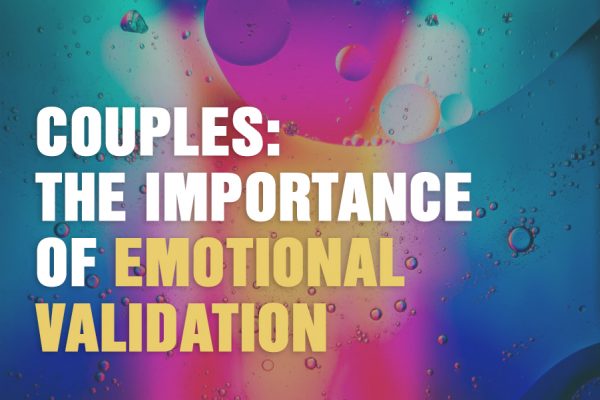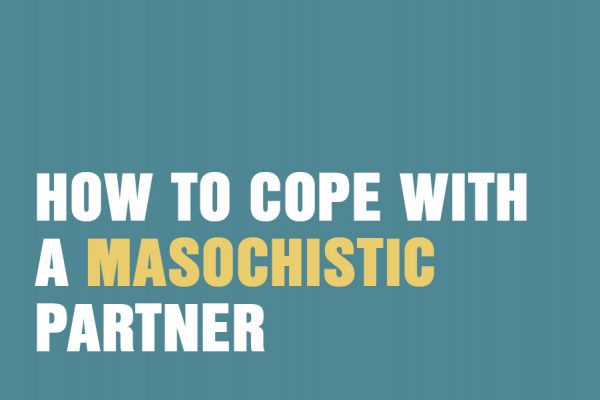The feeling of love, trust, and safety that comes from being with your partner is what we mean when we talk about intimacy in a relationship. It’s often considered the foundation of a relationship; an anchor for when the going gets tough and the reassurance that you’re not alone.
However, every romantic relationship is like a rollercoaster. There are good periods and less good periods; times when we feel really connected to our partner and times where we feel more distant. These ebbs and flows are part of any relationship, but what about if you feel like the lack of intimacy is more persistent? Can your relationship survive without intimacy?
In this blog, we’ll talk about what intimacy is and why intimacy might wane. Then, we’ll explain some ways to address this with your partner so you know how to survive a relationship without intimacy.
Intimacy in relationships
First things first, it’s important to know that periods without intimacy are normal in any relationship. Significant life events like a new job or grief can get in the way of regular intimacy, as well as periods of stress or where you have lots of responsibilities to take care of. We should also acknowledge that there are two core types of intimacy in any relationship: emotional and physical. Both are equally important for a strong, long-standing relationship.
Emotional Intimacy
When you and your partner both feel safe, secure and loved, you have a strong level of emotional intimacy. Creating a deeper level of trust is important for fostering a connection with your partner. Emotional intimacy can lead to a positive sexual relationship based on higher levels of trust.
Physical Intimacy
Physical intimacy is what most of us immediately think of when we hear the word intimacy: physical affection and sexual intimacy, such as hand-holding, cuddling, hugging, kissing and, of course, sex. In relationships, sometimes, sexual desire and intimacy develops before emotional intimacy, but in other cases, being able to communicate openly can lead to physical intimacy as a result.
Why might there be a lack of intimacy?
As we touched on above, there are a number of reasons why relationships go through periods of little or no intimacy:
Short-term changes
A lack of intimacy could be brought about by short term changes, such as a hectic few weeks at work, a big deadline, or some other external stressor. In these cases, it’s likely a waiting game. Once the stressful event is over, it’s more than likely that you’ll fall back into a more intimate relationship and feel connected again.
Significant life events
Sometimes, there are more persistent changes and life events that also get in the way of intimacy. Financial difficulties, a change in employment, or even mental health difficulties can last a lot longer than a period of work stress. This can put a much larger strain on a relationship, especially if only one partner is having difficulties.
Lifestyle shifts
Lastly, there might be a complete change in your lifestyle that might mean that you feel like you’ve grown apart and that intimacy is missing. The most obvious example here tends to be having children: pregnancy, childbirth and the first few months in particular can take up a lot of mental and physical energy, leaving little time for intimacy with your partner.
How to survive a relationship without intimacy
If you’ve been reading this blog and seeing parallels to your relationship, you might now be wondering if there’s anything that can be done about it; if there’s a way to survive the relationship without intimacy. The answer is slightly complicated. The short version is, if you don’t take steps to address your feelings of diminished intimacy, it’s likely the relationship won’t survive. However, in most cases where there is open communication between partners, you stand a strong chance of being able to improve intimacy and weather the storm.
We’re going to look at three things you can do if you’re experiencing a lack of emotional and physical intimacy in your relationship:
- Talk your feelings through
- Go back to the dating stage
- Explore couples counselling
Talk your feelings through
One of the first things we recommend that you do if you’re feeling like there is a lack of intimacy in your relationship is talk to your partner. Opening up an honest and respectful channel of communication is an important first step in understanding why you might be feeling this way and moving past it together. Create that space for both of you to share your feelings and be vulnerable with each other in a safe way. You might uncover an underlying reason for drifting apart, which allows you to course-correct and begin to build that connection again once you realise you’re both on the same page.
Go back to the dating stage
The first phases of a relationship are filled with a huge amount of passion, and the honeymoon phase is so exciting for a reason. With a lot of physical touch and time dedicated to building an emotional connection, it’s no surprise that this is one of the most intimate times in a relationship. If this begins to fade, a sexless relationship may evolve and there may be no clear distinction between your partner and your friends. Sexless marriages and relationships often end due to this, so it’s important to keep the romantic spark alive. You can bring some of that spark back by going back to the start and dating each other again.
Dedicate one night a week as date night, where you do something just the two of you to rekindle your spark. If time and money are a factor, maybe try bringing them a coffee at work or planning a film night at home. Giving each other this level of attention can help bring back some more of that intimacy that was so strong in the early stages of the relationship.
Explore couples counselling
It can be difficult to navigate these relationship challenges alone. It requires that you get vulnerable with yourself and your partner which, if you’re struggling to feel connected, can be challenging. Relationship counselling can offer you both a safe space to work through your feelings and find ways to reintroduce intimacy into your relationship. Many couples find relationship counselling plays a core role in keeping them aligned and helping the relationship to not only survive, but thrive.
Going to counselling can ensure you’re able to reconnect on an emotional level whilst addressing issues that could be contributing to your lack of intimacy. Communication and openness go hand in hand with a positive and healthy relationship.
Relationship counselling with The Awareness Centre
If you’d like to explore couples counselling with your partner, there are plenty of options for support with The Awareness Centre. Our psychosexual therapists can help you to address physical intimacy and sex life issues, while our couples counsellors can help you to work through the emotional connection. Get in touch with us today to discuss how a marriage counsellor or sex therapist at The Awareness Centre can help you to survive a relationship without true intimacy.







